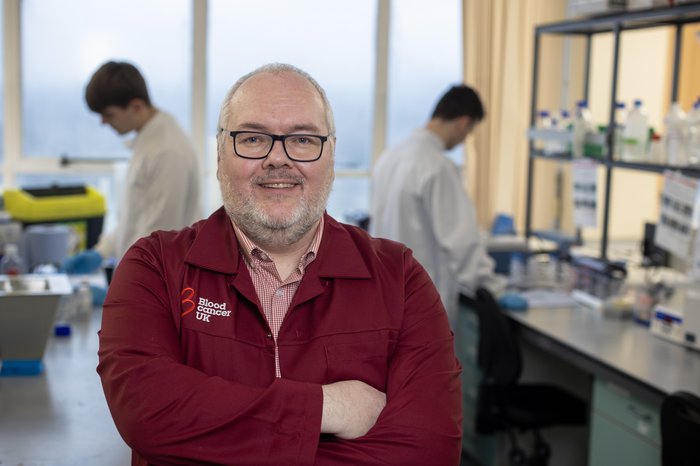Finding new ways to treat AML
Professor Tonks is studying what drives AML to try and find new treatment targets for people the disease.

Professor Alex Tonks
The challenge
Acute myeloid leukaemia (AML) is an aggressive form of blood cancer which can be very difficult to treat. The treatments that are available are toxic and cause harsh side effects for people receiving them. There’s an urgent need to produce new and effective treatments for AML to improve the chances of survival.
The project
Professor Alex Tonks and his team have previously identified a protein that is changed in people with AML. However, little is known about how this protein is involved in the development of AML, and whether blocking the protein is able to stop the growth of the cancer. Professor Tonks will study cells from people with AML and will see what happens to the cells when they block this protein. Professor Tonks will also look for other targets in AML cells that have potential to be targeted by treatment in the future.
The future
The hope is that this project could lead to new treatments being developed for people with AML in that are more effective and less toxic, giving everyone the best possible chance of survival.
What our community think
“This study definitely fits the need to find better, kinder treatments for AML by understanding the disease better. We know that until recently treatment options for AML patients remained unchanged for many years and were only intense, high dose chemotherapy which has a devastating effect on patients. Therefore, I think this study is an important one.”
Patient Voice Grant Advisory Network Member, in remission from AML
